Bed bugs in Paris – a new tech opportunity?
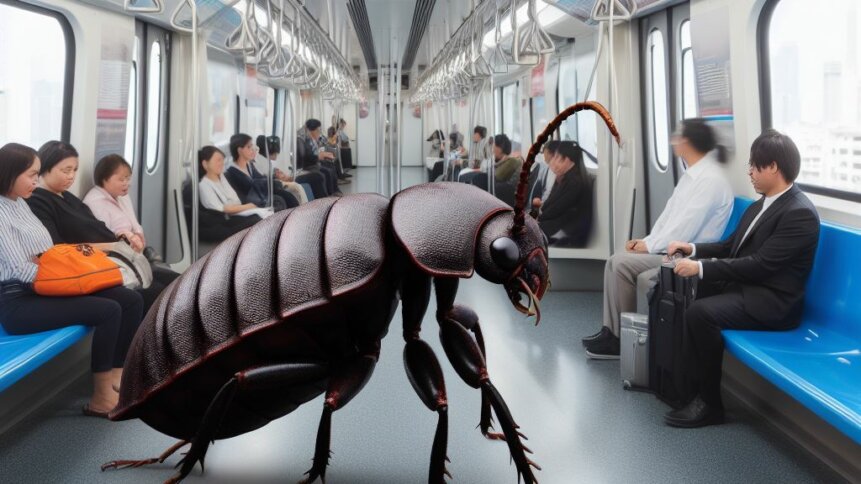
|
Getting your Trinity Audio player ready...
|
• Bed bugs in Paris have become global news.
• New technology can be highly effective at removing the problem.
• Older remedies exist, but are less reliable around the clock.
After Paris fashion week this year, bed bugs in Paris hotels hit headlines. An outbreak of the insects across the city saw viral clips of bed bugs catching the metro and crawling around expensive hotel rooms.
Hoteliers and influencers alike panicked about a possible new pandemic of the pests, but luckily, although recent attention makes the problem seem new, bed bugs in hotels and elsewhere have long enjoyed terrorizing travellers.
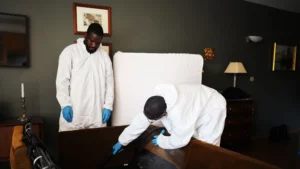
Pest control workers from Societe Mesnuisibles de-bugging a Parisian apartment. Getty Image via Wired.
If a guest is badly bitten, hotel owners are at risk of being sued. Amid reports of outbreaks of bed bugs in Paris – and spreading to the UK – firms are seeking solutions: how can guests be reassured that bed bugs won’t disrupt their holidays?
Max Malka, owner of the Montlhery Paris Sud Hotel, which is 15km south of Paris, told the BBC “A fortnight ago we had a detection of bed bugs and it’s frightening.”
That detection, and others like it, came thanks to technology.
Firms are turning to technological solutions old and new to tackle the recent outbreaks of bed bug infestations and prevent closures. Pest control company Rentokil said it saw a 65% jump in cases of bed bugs in the UK in the second quarter of 2023 compared to the previous year.
After the outbreak at Malka’s hotel, he paid a pest control firm €1,500 ($1,585) to eradicate the bugs before they spread. He was able to detect the pests early and prevent the spread after investing in a new monitoring technology developed by UK start up Spotta.
This why they got bedbugs, u outside with the sheets https://t.co/BU2q0ZVADd
— #RealHitta (@Gatsby_CGB) October 8, 2023
Possibly out of pride and probably to reassure guests, Malka has stickers in his hotel telling his customers the technology is in place.
Spotta devices are a small plastic box containing a pheromone chemical designed to attract bed bugs, placed between mattresses and bedframes. If a bug crawls inside, a camera in the device takes a picture and sends it, via the internet, to a central database.
Then, a combination of AI and the human eye (the latter vets what the former flags) confirms whether a bed bug has been caught. If it has, text alerts are sent to the relevant managers.
Spotta’s boss Robert Fryers says it’s vital to catch an outbreak before it spreads, “because you can go from two bedbugs to thousands in the space of months.”
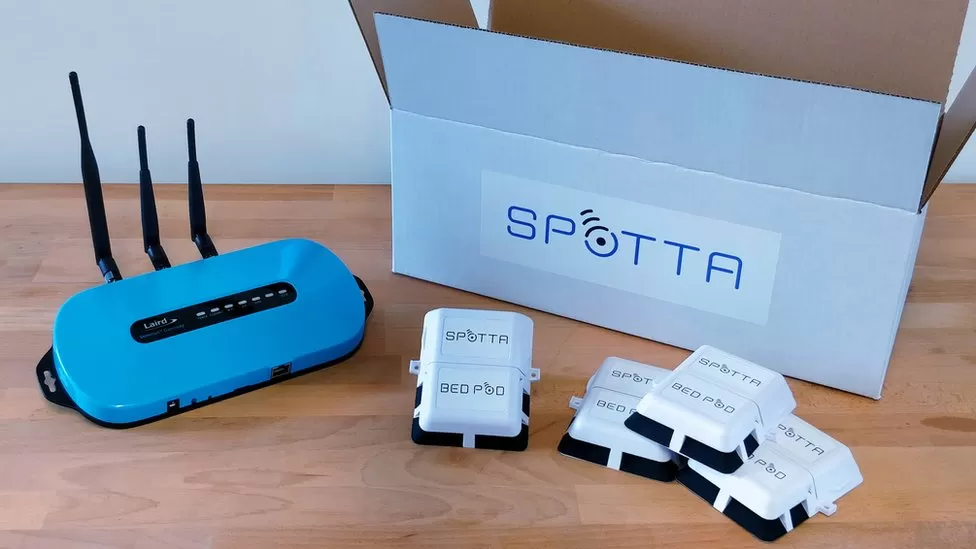
Spotta devices – for your uninvited (and unpaying) guests.
If you’ve noticed the pandemic-esque language, get ready for more: Fryers says Spotta technology is “a bit like a Covid test for bed bugs.”
Once detected, measures can be taken to eradicate the issue – hopefully before guests notice the pests and share their experience on social media. Bad press avoided, it’s also easier to get rid of bed bugs if they’re detected early.
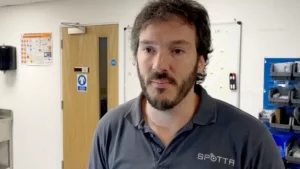
Spotta’s Robert Fryers.
Ironically then, one method that Spotta uses to detect potential customers is trawling TripAdvisor to find customer reviews complaining about bed bugs.
After all, to coin a musical phrase, Who ya gonna call?
Although the technology that Spotta uses is new, it’s based on old principles pioneered by Finland’s Valpas. The company that led the early-detection approach has signed deals with many luxury hotels across Europe.
Not to be left behind, Valpas has designed a digitally connected bug trap that’s integrated into the custom legs it makes for beds. Bugs crawling up the bed to bite humans are caught in a cavity and the traps send a digital signal over the internet to alert hotel owners. So far, it’s raised more than $2m in venture capital funding.
There’s long been a stigma surrounding pest control: you’re probably less likely to check into a hotel with an extermination van parked up out front. However, the issue is prominent in the news and on social media at the moment, so hotels now see merit in showing their proactivity.
A less tech-heavy approach relies on man’s best friend. Sniffer dogs are one of the oldest bed bug detection tricks in the book; although they take around six months to train, sniffer dogs who specialize in bed bugs are highly effective.
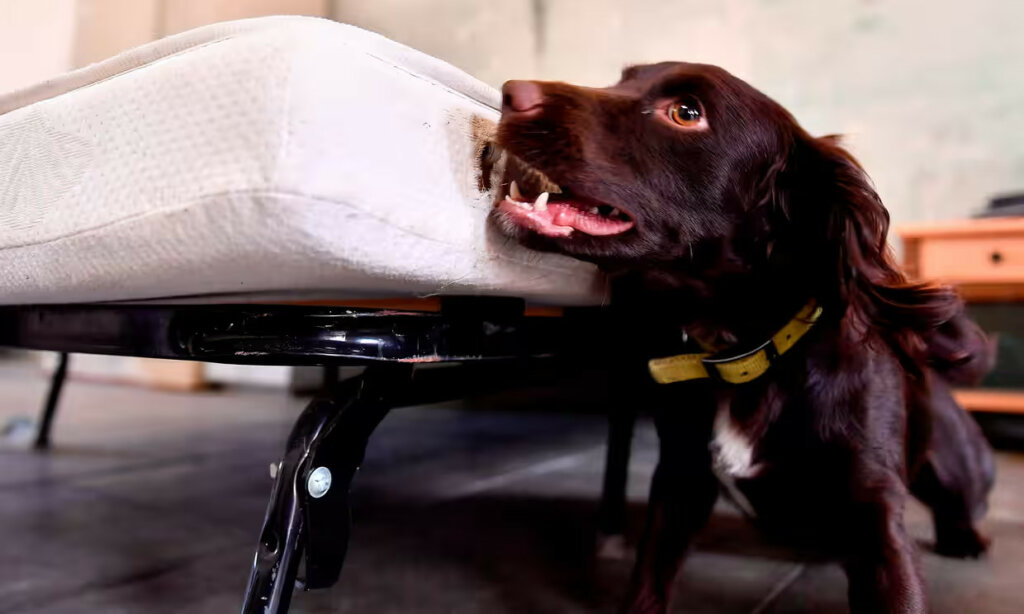
Trained dogs, such as this cocker spaniel, can detect bed bugs within a few seconds. Photograph: Georges Gobet/AFP/Getty Images.
They need little maintenance and don’t risk any technical faults or going offline (lucky really, as they can’t be turned off and on again). Dogs can’t work around the clock, though, and they take a while to check a hotel going room-by-room.
Being proactive is, as ever, an advantage in business. Even though pest control solutions might feel like a financial stretch, the potential drop in revenue that a bed bug outbreak would cause should be incentive enough to spend the money, even if concern for the clientele is not.
Scenes for which the phrase “Kill it with fire” was explicitly created.









